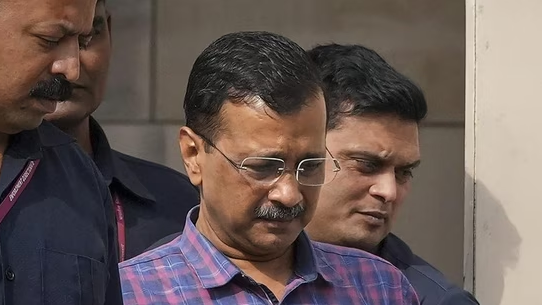The Enforcement Directorate (ED) defended its decision to arrest Delhi Chief Minister Arvind Kejriwal in a recent affidavit submitted to the Supreme Court, citing Kejriwal’s alleged non-cooperative behavior as a contributing factor.
In its reply to Kejriwal’s petition challenging his arrest, the ED asserted that there were no “malafide or extraneous reasons” behind the action taken against him. The agency contended that Kejriwal’s conduct, characterized by what it termed a “non-cooperative attitude,” aided in justifying his arrest.
“The accused, by his conduct, has himself contributed and aided the investigating officer regarding the existence of the necessity to arrest,” stated the agency in its affidavit to the Supreme Court. It further elaborated that Kejriwal’s behavior, coupled with the evidence in possession of the investigating officer, formed the basis for the decision to arrest him on charges of money laundering.
The ED dismissed Kejriwal’s petition as “devoid of merit” and asserted that the material evidence against him had been examined by various courts. Referring to Kejriwal’s allegations of malafide intent, the agency described them as “baseless and ill-founded.”
The affidavit highlighted instances of Kejriwal’s purported evasiveness and non-cooperation during questioning, both before and after his arrest. The ED justified the necessity of custodial interrogation, stating it would facilitate more detailed questioning and lead to further revelations.
Accusing Kejriwal of blatant disregard for the law, the ED emphasized his repeated refusal to comply with summonses, including skipping nine summonses before his arrest.
In response to the affidavit, the Aam Aadmi Party (AAP) criticized the ED, accusing it of fabricating lies at the behest of their “masters, the BJP.” Kejriwal’s arrest on March 21 in connection with a money laundering probe linked to the Delhi excise policy case has sparked significant controversy.
On April 9, the Delhi High Court upheld Kejriwal’s arrest, citing his repeated failure to appear before the ED despite summonses. Kejriwal subsequently approached the Supreme Court, which sought a response from the ED over his petition on April 15.
The developments underscore the escalating legal battle surrounding Kejriwal’s arrest and its implications on the political landscape.

